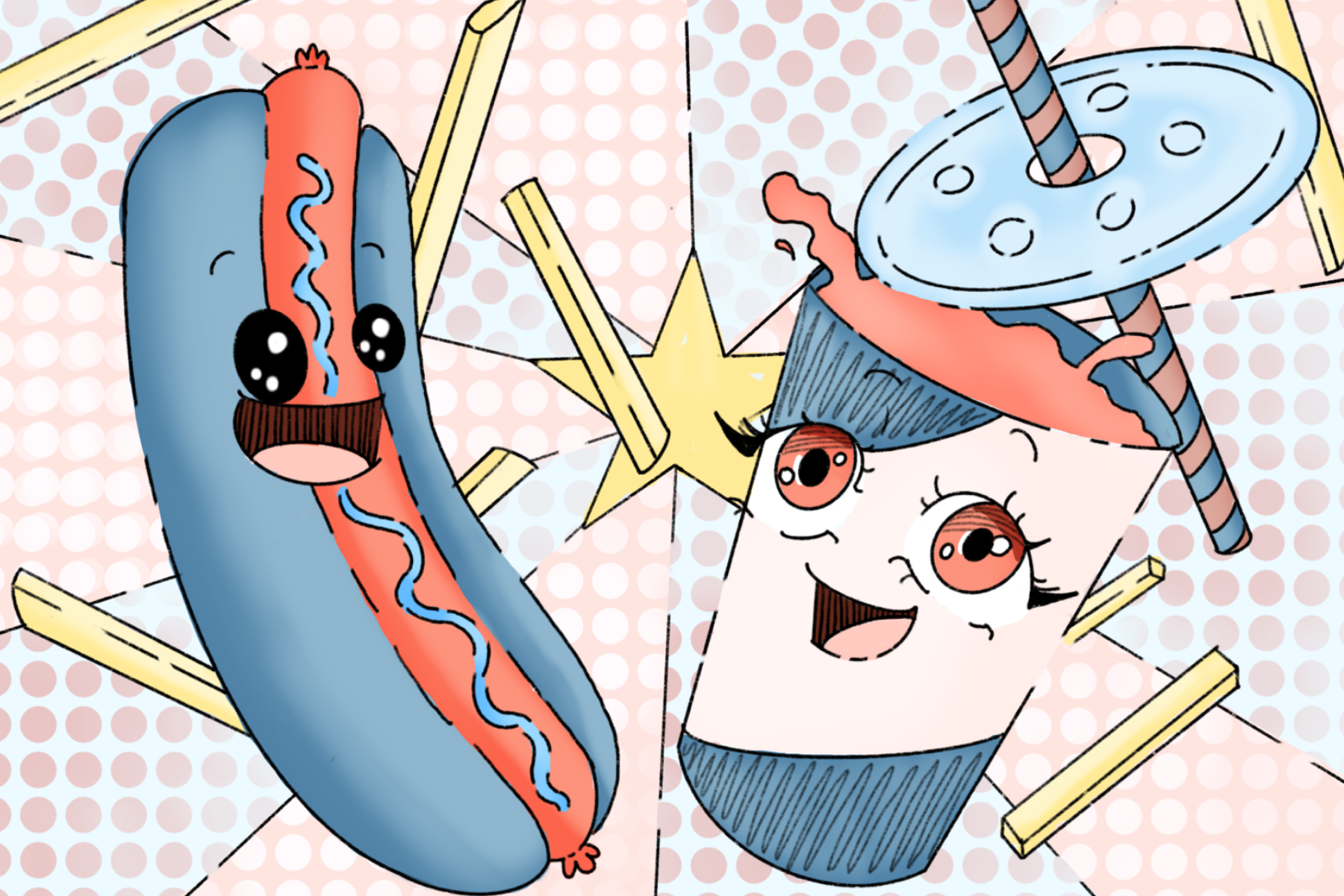Cutesy music plays in the background of highly edited videos presenting grocery store hauls and lunch recipe how-tos. Both of these subject matters are completely in line with typical TikTok content and yet there is something somewhat off about how these moments are depicted under the AmericanCore hashtag.
Instead of the visually appealing and often non-Western snacks seen in many “shop with me” or “cook with me” videos, AmericanCore content shows creators throwing together generic white bread and mayo sandwiches. The videos precisely mimic the formula of KoreanCore and JapanCore TikToks but because the food exhibited is familiar and plain, these short clips are lackluster and even unsettling to the average viewer.
#AmericanCore jabs at white America’s tendency to reduce, exotify and subsequently commercialize elements of Asian culture, specifically Asian food. Asian TikTokers highlight the strangeness and absurdity of non-Asian content creators gushing over trips to Japanese grocery stores and botching the pronunciation of simple Korean words by flipping the script.
Under the AmericanCore hashtag, social media users explain that the word “cute” is the English equivalent of “kawaii.” Creators pose and take pictures at their local Whole Foods and Walmart and feign enthusiasm over authentic American mason jars. Many #AmericanCore videos are overlayed with a baby pink tint and incorporate an excessive amount of emojis. Overall, viewers are left will a mostly positive assessment of the United States as TikTokers boast that “America is just so cute!”
Although these comments are complimentary, they feel insincere. And that’s because they are. The AmericanCore hashtag shows how ridiculous non-Asian TikTokers appear as they dub their trips to 99 Ranch Market with anime music and “wow” over everyday Chinese food.
These critiques are especially poignant at a time of heightened Asian hate. Since the start of the COVID-19 pandemic in early 2020, Asians across the world have been wrongfully labeled as the culprits behind the spread of the coronavirus. This has led to an increase in hate crimes and discrimination against the international Asian community. The praising and exotification of Asian food comes off as especially shallow and vapid as Asians everywhere have become marginalized in their own communities and feel ostracized by their fellow citizens.
In the spring of 2020 when COVID-19 infection rates skyrocketed in America, then-president Donald Trump took to calling the deadly virus the “China Virus,” which othered and instilled fear against the United States’ own Chinese and Chinese American populations. Other Asian Americans soon also became victims of anti-Chinese rhetoric via proximity and ignorance.
One of the most prominent displays of violence against Asians during the COVID-19 pandemic took place in March of 2021 in Atlanta, Georgia. During this attack, the perpetrator, Robert Long, killed eight people and is said to have been motivated by anti-Asian sentiments. He has been indicted with murder and domestic terrorism charges.
Prejudice against the Asian community can even be seen on popular TV shows such as “The Late Late Show with James Corden.” In the reoccurring show segment “Spill Your Guts or Fill Your Guts” Corden gags over traditional Asian food such as balut and chicken feet, calling them “horrific” and “disgusting.” “Spill Your Guts or Fill Your Guts” shows the other side of American commercialization of Asian culture.
If something isn’t cute or novel, it’s labeled as bizarre and disgusting. Asian food in America is treated like a one-dimensional product, marketed to serve the singular purpose of entertaining non-Asian Americans. Whether this is done by portraying Asian cuisine as strange or “kawaii,” this method of commercializing Asian life ultimately others the Asian experience and reduces Asian culture to a product that’s for sale.
TikTokers respond to trends such as JapanCore and KoreaCore by mocking American hypocrisy toward Asian culture. Although AmericanCore is just a TikTok hashtag, it speaks to feelings and larger trends in the media and in American society at large. Today’s Asian and Asian American communities have grown tired of the portrayal of Asian culture in the U.S. and are unafraid to use social media as a vehicle to speak about their grievances.
TikTok is not the only place where Asians have drawn attention to the exotification and appropriation of the Asian experience. Content creators have also posted YouTube videos, tweets and Instagram posts regarding Asian-fishing — a way of presentation by which non-Asians use makeup, clothes and editing to appear Asian.
Over the past year the fox-eye makeup trend, which uses cosmetics to elongate and lift the wearer’s natural eye shape, has come under fire for eroticizing and appropriating the East Asian almond eye shape. Asian social media users have pushed back against fox-eye makeup, with the simple yet assertive slogan “My eyes are not a trend.”
With the rise of racism and prejudice against the international Asian community over the course of the COVID-19 pandemic, it is clear that Asian youth, or at least those who maintain a social media presence, refuse to stay silent. Topics such as anti-Asian discrimination, double standards, cultural appropriation and targeted violence are being covered by today’s youth.
#AmericanCore is just one of the many internet trends that address the exotification of Asian culture and the perception of one-dimensionality that results from such othering. By flipping the script of exotification on American culture, non-Asian Americans get a taste of their own medicine and recognize the absurdity of their portrayal of Asian culture.


















agreed, liking something is clearly hateful. will be careful to avoid liking asian things in the future, don’t want to become another Robert Long! thank goodness for balanced and unbiased reporting like this